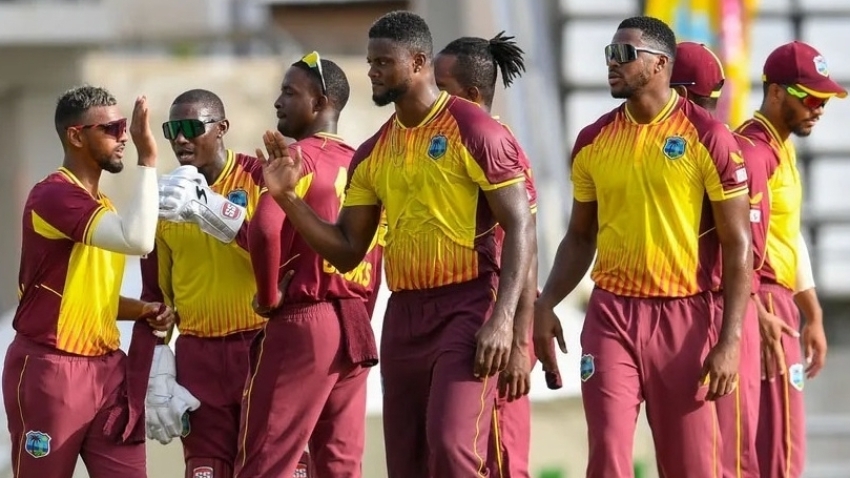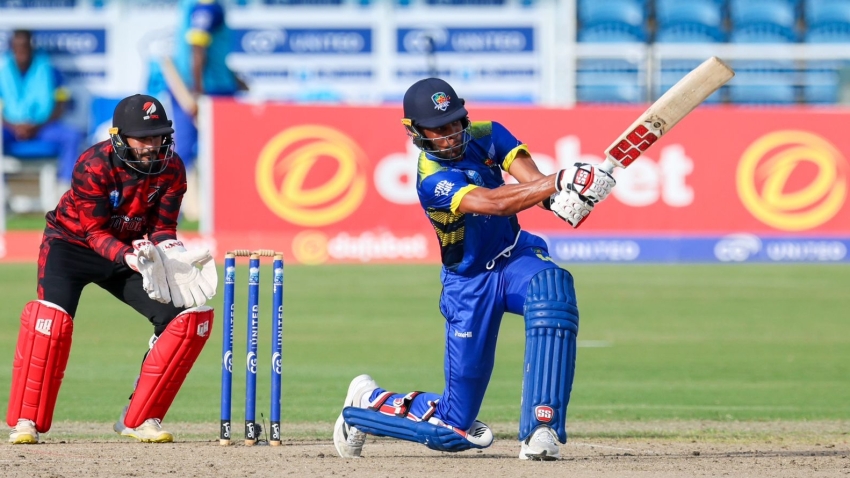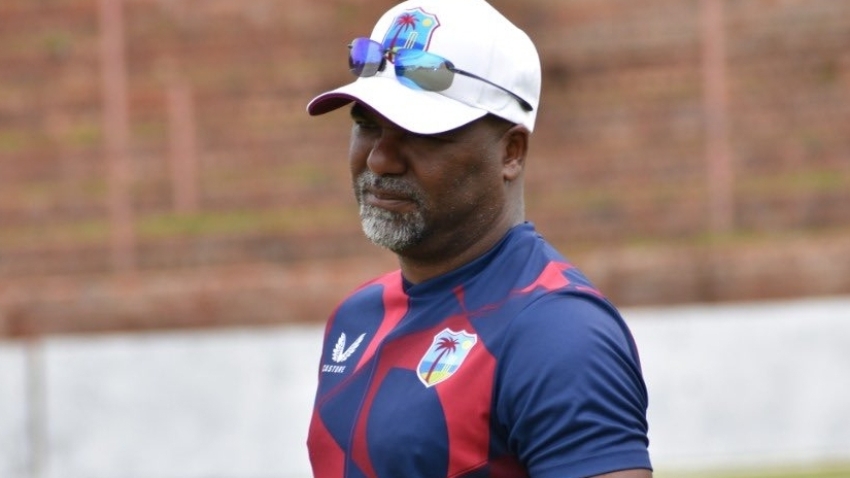The year 1996 was a great year for sports. The cricket World Cup, Olympics Games, European football championships and Chicago Bulls produced a then NBA basketball record, winning 72 games that season.
Seeing all those 1996 sports events set off my path from sports fan to professionally in sports journalism and public relations.
I mention this to highlight that it’s 100 per cent clear to me that the modern “West Indies selection” trivialities are unique in global sports. It’s no longer a case where one can use the clichés; it's simply a case of selectors' opinion and Caribbean people can’t expect them to pick West Indies teams that attain full agreement.
It’s very possible for myself and many astute sports fans to watch all teams in the NBA, English Premier League, other international cricket teams or at a FIFA World Cup and get a clear idea of the best starting XI or five.
These teams still elicit media and fan discussion over player selection. However, it never descends to the current Windies selection malaise since the rise of T20 cricket leagues in 2009, where chosen teams never gets 90-100 per cent support from all stakeholders.
As noted on another publication - https://m.cricbuzz.com/cricket-news/127188/has-the-time-come-to-end-the-west-indies-experiment - observing CWI internally from 2019-2023 after previously in sports media from 2010-2019, fundamentally leads me to believe due to the modern dynamics of international cricket, unfortunately, despite who is in charge, the “Caribbean cricket” ecosystem cannot be fixed, whether the quasi-national “West Indies” construct is maintained or broken up voluntarily or by market forces.
However, doing the simple global sports concept of “picking your best team” should not be hard for West Indies cricket to accomplish.
What are the best West Indies XIs?
The reality is that selectors don’t objectively know and can’t currently select West Indies teams that will gain unanimous media and fan support. These suggested hypothetical XIs across might have been universally accepted if things were perfect but erudite West Indies observers know there is no chance of these teams ever taking the field.
T20
King, Hope, Pooran (wicketkeeper), Hetmyer, Powell (captain), Holder, Russell, Narine, Hosein, Joseph, McCoy
Reserves: Rutherford, Allen, Shepherd, Drakes
ODI
Lewis, Hope (captain/wicketkeeper), King, Pooran, Hetmyer, Mayers, Holder, Shepherd, Hosein, Joseph, McCoy
Reserves: Carty, Paul, Motie, Seales
TEST
K Braithwaite (Captain), T Chanderpaul, Bravo, Hope, Hetmyer, Pooran (wicketkeeper), Holder, Hosein, Joseph, Roach, Seales
Reserves: King, Mayers, Cornwall, Gabriel, Da Silva
General selection problems:
The role of “selectors” no longer works in the unique dynamics of the West Indies cricket multi-national construct. The former Ricky Skerritt administration's “selection review” task force implementation regrettably hasn’t been able to cure this problem.
That review outside of the five Governance task force documents since 1992 was arguably the most consequential administrative document in recent CWI history.
Caribbean cricket media and fans can attest to the complete trust breakdown in West Indies selection process since 2009 and why such a task force, that no cricket board globally had done before, was needed.
Since 2009 West Indies have tried two “legends' Clive Lloyd & Desmond Haynes, a highly respected player, Roger Harper, and two players who didn’t succeed at the international level in Clyde Butts and Courtney Brown, for the polarizing role of chairman of selectors. None led to the improvement in West Indies results.
Given the long-standing issue of insularity, currently having two selectors from Barbados in Desmond Haynes and Roland Butcher is unsustainable. Despite the gentleman’s potential good intentions - their presence is exasperating insularity feelings and bias in selection, whether real or perceived.
Roger Harper lost his job after the West Indies were eliminated from the 2021 T20 World Cup group stage - however Desmond Haynes still remains despite selecting teams that failed to qualify for the 2022 T20 and ongoing 50 overs World Cups.
A good example of this current case was when new white ball coach Darren Sammy, on appointment in May, saying he had in-depth conversations with Andre Russell, Sunil Narine, Evin Lewis and Shimron Hetmyer about playing for West Indies.
https://www.espncricinfo.com/story/wi-coach-daren-sammy-wants-to-get-andre-russell-suni-narine-shimron-hetmyer-back-1378679
However, only Hetmyer has returned and selector Haynes said in his last public press conference in July, that Russell and Narine, who had just shown their quality in TKR’s run to CPL final, were not in his conversations.
https://x.com/caribcricket/status/1686128090324320257?s=46
This is basic deja’ vu. Many will recall a similar coach clash over players with selectors/administrators. During Phil Simmons’ first stint as coach he was comically suspended in 2015 for simply saying he wanted to select the best players.
https://www.espncricinfo.com/story/phil-simmons-suspended-as-west-indies-coach-924039
Also at domestic level there isn’t a clear alignment in picking teams for West Indies in mind, but rather for national interest to win the four-day and 50 over’s tournaments.
To highlight two quotes from Daren Ganga who called out this issue in Trinidad & Tobago via a public Facebook post a few months ago:
“Please focus on using retainer contracts to develop and reward younger cricketers and stop using for senior players who are underperforming and have non contention to play for West Indies.”
“West Indies cricket is declining and our national selectors are directly contributing to the further demise of the game.”
https://m.facebook.com/story.php?story_fbid=pfbid02ZNSqZ9WLosMX5bunaKvdfcXHHBRo3JLSLwF6xeyS5cwwLgxMRab3K2EfPZsxGjz9l&id=100028246136315
Copying the English system:
Since the rise of T20s in 2009 and the decline in domestic standards since the PCL revamp in 2014, West Indies selectors have erred more on the side of conservative selections. They have never truly been innovative in picking players away from statistical performances in a poor domestic system or picking players for Test cricket based on international limited overs form like other nations have attempted.
That factor has led to the current predicament of having only two all-format players, Jason Holder and Alzarri Joseph. The West Indies talent pool isn’t big enough to allow further continuing of this systematic selection faux pas.
The English strategy of empowering the coach to be a selector with scouts around nations assisting should be implemented. Under Director of Cricket Rob Key in April 2021, the ECB made the role of selector redundant for 19 months, overseeing a period where the much-hyped “Bazball” Test cricket was implemented and England winning the 2022 T20 World Cup.
Afterwards, despite success Luke Wright was appointed selector in November 2022,
https://www.espncricinfo.com/story/england-cricket-ed-smith-s-tenure-ends-as-national-selector-as-role-is-made-redundant-1260049
https://www.espncricinfo.com/story/luke-wright-named-as-england-men-s-new-selector-1345988
That approach seems perfect for the West Indies, where the coach would have sole selection authority like a football manager with support of the captain and Caribbean-wide scouting network support system. Then Desmond Haynes and any of the “legends” can be used in a more productive role, rather than the outdated and impossible West Indies context job of “selector”.
Colin Benjamin was a Cricket West Indies communications officer from 2019-2023. He has covered West Indies cricket for more than a decade for other global and Caribbean publications.





























